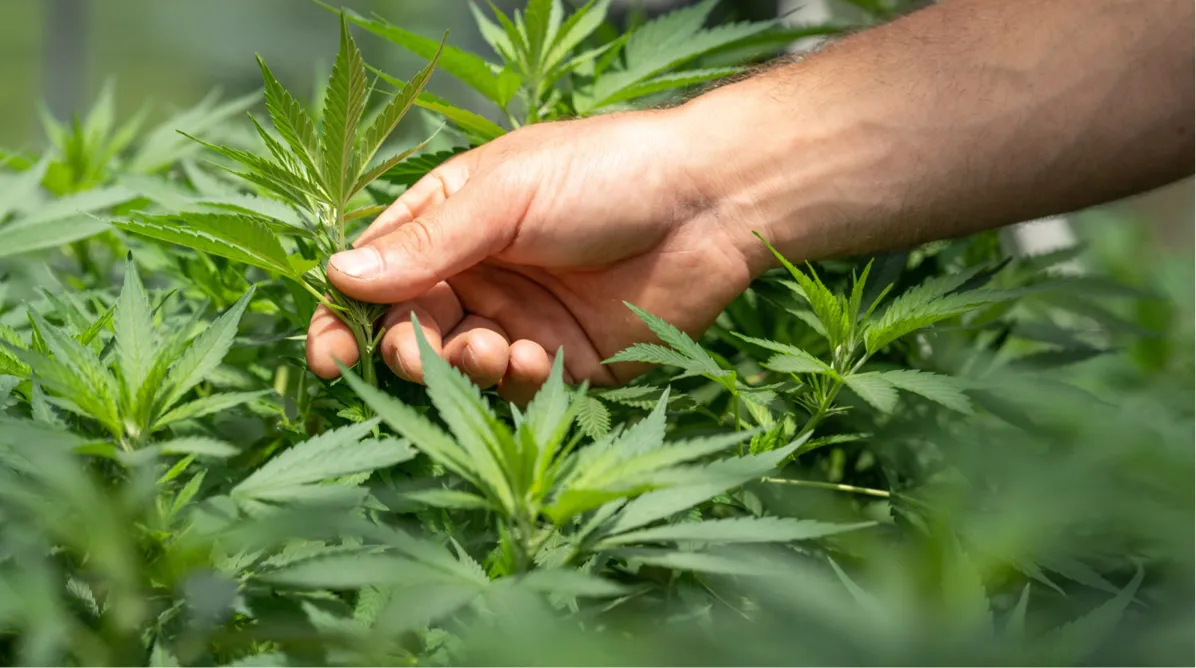MyCannabisGenes®

Medical importance of phytocanabinoids
Phytocannabinoids have significant therapeutic potential and have been increasingly adopted for medicinal purposes. In Portugal, the sale of medical cannabis is allowed in pharmacies.
The main components of plants of the Cannabis genus, THC and CBD, have been mainly used to
- increase appetite
- prevent and treat seizures
- reduce pain
- relieve nausea and vomiting
Pharmacogenetic Testing – MyCannabisGenes® Gene Panels
The genetic test MyCannabisGenes® is available with two different genetic panels: (i) a shorter panel focused on THC and CBD metabolism and the cognitive impact of the exposure to phytocannabinoids, and (ii) a larger one (MyCannabisGenes® Extended) that adds to the previous panel the study of the psychological and behavioural impact of cannabinoids, and the predisposition to addiction. The following table summarizes this information:
Genetics of THC and CBD metabolism
The phytocannabinoids THC and CBD are metabolized by enzymes of the cytochrome P450 superfamily (phase I metabolism) and by glucuronyl transferases (UGTs) (phase II metabolism) – Figure 1 and Figure 2. Given their key role in the metabolism of several drugs, these enzymes have been extensively studied, especially CYP2C9 and CYP2C19. The evaluation of gain-of-function or loss-of-function genetic variants allows the identification of changes in the metabolic capacity, with implications for the therapeutic effect of cannabinoids and, consequently, for dose adjustment.
The results of the metabolic capacity associated with each enzyme are presented in tables, and their global impact is represented through an impact classification system based on the traffic light colours:
The study of metabolisation capacity is useful for predicting the tolerance to the cannabinoid and the impact on different administration routes:
Cognitive Impact
This area of the test evaluates genetic variants associated with a greater predisposition to altered cognitive skills as a result of exposure to cannabinoids. The following outcomes are considered:
- Accuracy: an increased predisposition for mistakes while performing cognitive tasks.
- Impulsivity: a greater tendency to a hasty responsive behaviour or action.
- Problem-solving: reduced problem-solving skills
- Reaction time: an increased response time to external stimuli.
- Working memory: a decreased accuracy of the memory used to store information in the short term, which is essential for logical reasoning
Psychological and Behavioural Impact
This section of the MyCannabisGenes Extended report analyses genetic variants that predispose to behavioural and psychological changes by interaction with the use of cannabinoids, namely:
- Apathy and depression: an increased predisposition to experience mood disorders, indifference (lack of interest) in the response to stimuli or even feelings of sadness.
- Anger and hostility: a greater predisposition for feelings of anger and aggressive behaviour towards others.
- Antisocial personality disorder: an increased predisposition for a manifestation of indifference towards the well-being of others and a disregard for their rights.
- Psychosis: an increased risk of losing the ability to perceive reality, that is, to distinguish true from false beliefs and what is real from what is not.
- Risky sexual behaviours: greater impulsivity and less inhibition regarding sexual behaviour.
Predisposition to addiction
Estimates for the number of users seeking treatment for cannabis dependence in the European Union show that this number has increased from 27% to 35% in about ten years (Manthey, J. et al. 2021).
Progression to dependency is correlated with psychological pathologies and is largely heritable: with about 50%-70% attributed to genetic factors (Verweij, K. J. H. et al. 2010, Johnson, E. C. et al. 2020).
In a medical context, this study is relevant for long-term therapies, such as in the case of chronic pain treatment. This section of the MyCannabisGenes Extended report assesses genetic variants that contribute to an increased risk of addiction and addictive behaviours with continued use of cannabinoids.
An interactive WebApp
Alongside the report with the results of the genetic test and its interpretation, it is possible to access this same information, and even more, through a WebApp. By reading a QR code available in the report, the results are automatically shown in the device’s browser, interactively and without the need to install any application.
Advantages of the WebApp
- Access the results anywhere on a mobile device
- Get additional information about the science behind the test
- Register a history of intakes and doses in the “My Journal” tool
MyJournal
A personal record of phytocannabinoids use is created using a very simple form. The stored information includes:
- Frequency of use
- Dose and route of administration
- Side effects
- Manufacturer and product designation
Scientific studies
TBA.